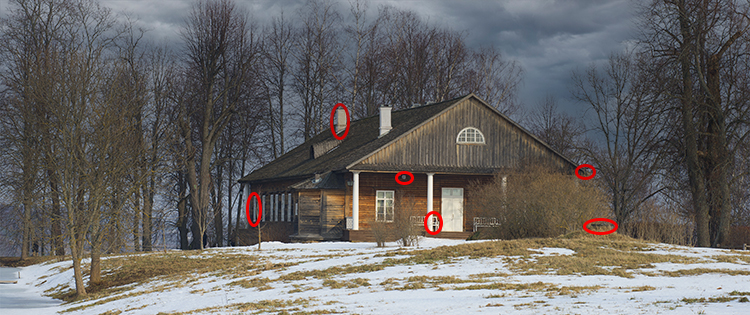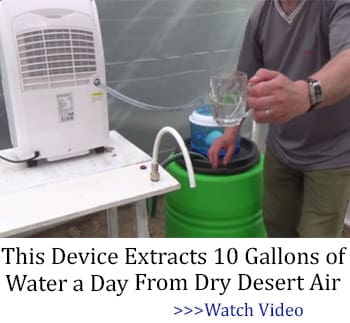It’s the most wonderful time of the year! Happy holidays for those who celebrate and for those who don’t, we hope you have a lovely last month of this year, too. Just because people have come inside and everyone is full of home-baked goods and excellent dinners do not mean that the needs of the farm slow down in the slightest. No, your homestead may be an icy realm, but it still needs to be cared for.
Again, since very few changes in preparation between the north and the south, that’s how we’ll be splitting this up. Let’s get going.
The North
Winter has come and it’s here to stay. Forever.
Well, it only feels that way. What on earth could you need to do with so much snow and cold blowing around? It’s almost like the world is at rest and it’s time to do the same. Right?
Never!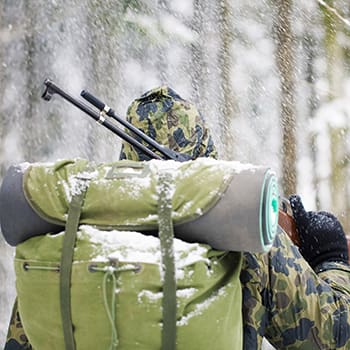
No, now is the best time to go out and hunt (if your county allows it) and, if you need to do it, butcher livestock. You’ll have no insects to bother you and more people are willing to come to help you field dress and haul livestock or hunt game when they can bundle up and not sweat to do it. So start a fire, call your neighbors over, and get the rough work done so your freezers aren’t empty in June or July.
If you aren’t interested in that sort of thing, your freezer is already packed, or you’re a vegetarian (like me) or vegan, you’ll need to turn your attention to the garden. You don’t want to aerate (as some blogs suggest) during this season because you’ll kill beneficial bacteria just below the surface, as well as several microorganisms that you want to maintain. That’s, assuming, you could even get your aerator through this hard-packed frozen land and, perhaps, inches upon inches of snow.
What you should be doing is feeding the snow.
Related: Crucial Items to Stockpile for Winter
Mark out the area your garden resides in if you don’t have a garden fence. Throw your amendments directly into the snow. Ideally, this is a blood meal or a bone meal. These take a good long time to break down and will do so a little faster if they’ve been cold and wet all season. Essentially, you are cold-fermenting the goodies so when the snow melts, they’re all ready to till into your garden and really bolster your soil.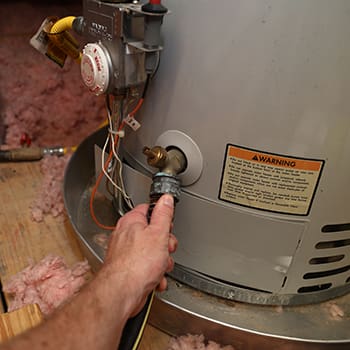
You’ll also need to keep an eye on your stock heaters if you have livestock. Stock tank heaters are usually caged, insulated heaters that help to remove the ice from your animals’ water troughs. But what do you do if you find yourself with a broken stock tank heater?
Clean it. Few people take a moment or two to run a wire brush over the plug end of a stock tank heater (this rust very easily given the conditions that they’re constantly in) or to take a scrub brush to the actual heating element itself. Just work around the outside, look for loose or chewed wires, and take a breather. We know these are expensive, but they can almost always be repaired so long as the repair that needs to be made is outside of the water.
And remember, take your time on the roads. We already know you’ve changed into your winter tires, but take it easy out there. We look forward to seeing you in the new year.
The South
We may not need to change into snow tires, but we do need to concern ourselves with motor oil. Make sure that older vehicles, tractors, and such have the season-correct oil in them. Newer vehicles likely will not need the switch, but many of the vehicles mentioned prior will. Stock up on it, too. This season looks as if we may end up with an oil shortage.
And not just the kind of oil you put in your vehicles, either! Butter, oil, and other fats are slowly drying up in grocery stores. If you have room in your deep freezer, go ahead and stock up on butter. Most other oils and fats will be fine on the shelf (coconut oil, vegetable oil, etc) so long as they remain unopened.
For southerners, you’ll see plenty of swings in temperatures this year. Though you’ll have plenty of frosty mornings, don’t be surprised if you’re seeing the 60s and 70s in the dead of winter. Things are changing and we really want to be prepared. A few years in a row where I am, dear readers, I’ve had tornado watches in December and January.
Related: How to Prepare Your Homestead In Case Of a Natural Disaster
Whether it’s tornado watches or ice storms on the horizon, I strongly recommend keeping your power tools charged and your batteries in a cool, dry location that is easily accessible. You never know when you’re going to need them or when the power may be knocked out by our temperamental weather. Though sometimes we can be a little less responsible and let charging day pass for a week or two, doing so in the cooler season is not a good idea. Spend a day at home once per month making sure everything is charged and ready to go.
The last thing I’ll cover is looking out for our local farm biome in the cooler weather. Seasoned farmers may not need this section, but newer homesteaders will do good to remember to leave the leaf litter alone! Raking your leaves not only kills beneficial insects, but it also ruins the beneficial bacteria in the top layer of your soil. Why?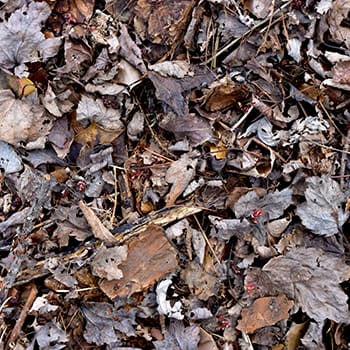
Leaf litter when undisturbed prevents the deep freeze that takes place on top of it. This is incredibly important for all of those beneficial little buggers because they don’t freeze to death in the extreme way that they do when the leaf litter is removed. We know that leaves are sometimes unsightly as they rot, but that rot kicks up a lot of heat for what’s underneath. If you want a healthy farm, leave your leaves alone.
This includes your garden area. In the spring, once you’re ready to start planting, feel free to till them under into your soil. Their job is done and they can go ahead and become brown fertilizer for your plants. But chopping or raking right now will destroy what you’ve worked so hard to build, and we’d all be very sad to hear that you’ve done that to yourself.
Final Thoughts
Have any other tips, tricks, or thoughts? Have we left something out for your specific area? Tell us down in the comments. We’d really love to hear what you have to say. And, as always, Happy Homesteading! We’ll see you in January with a whole new list of ideas and things that you can do while the world is still dark and chilly!
You may also like:
How To Keep Your Livestock Safe In Bad Winter Weather
The Bunker Food You Need To Have Right Now (Video)
